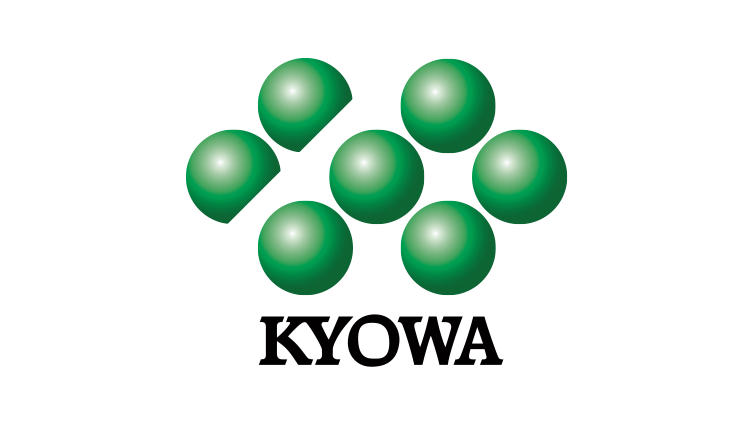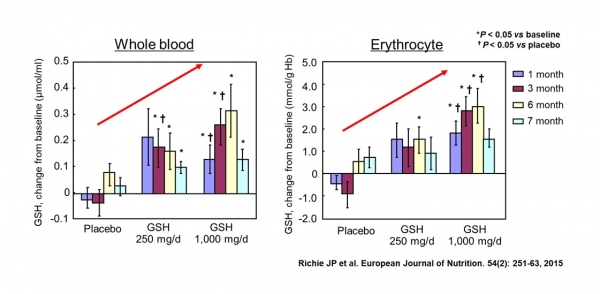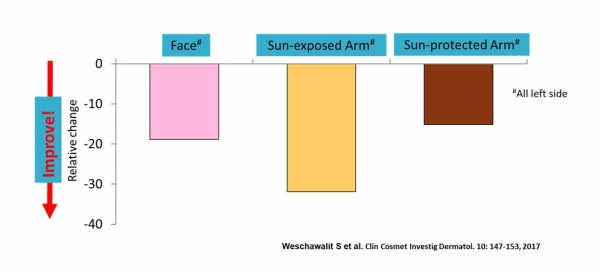Promotional Features
Unlocking skin health at a cellular level: The science behind glutathione
Growing skincare trends are influencing individuals to seek out more holistic remedies that promote skin health.
In a survey conducted in 2022, Euromonitor International highlighted that 53% of consumers now define beauty as ‘looking healthy’.1 This is reflected in a rise in skincare supplementation as shoppers seek products that can improve overall skin health and help to achieve a smooth, hydrated and glowing skin complexion.
“As consumers are increasingly prioritising skin health and wellness, supported by scientific evidence, Kyowa is anticipating our branded glutathione to be applied in supplements targeting ‘beauty from within’. Euromonitor data shows the global ‘beauty from within’ market grew by around 7% CAGR between 2017-2021, with Asia driving the growth,” says Amy Lau, Business Development and Marketing Lead, Kyowa.
However, there are many challenges that can make it difficult to maintain healthy-looking skin. Skin is the largest area of contact between the human body and the environment and factors such as ultraviolet radiation (UVR) exposure and pollution can contribute to signs of ageing.2 Because of this, consumers are increasingly seeking ways to protect their skin and reduce signs of ageing.
Asia-Pacific is the largest market for skin care supplementation. Following the flawless ‘glass-skin’ trend which originated in Korea, beauty-related dietary supplements was the fastest-growing segment across all Southeast Asian markets in 2022, with Malaysia leading the way at over 17%.3
To achieve this desired effect, consumers are turning to products that promote a hydrated, pore-less, almost transparent complexion – like glass. A key ingredient in this market is glutathione which has spiked thanks to its skin-health benefits.
Glutathione: The ‘master antioxidant’
Glutathione is a tripeptide consisting of three amino acids – cysteine, glutamic acid and glycine – and often called the ‘master antioxidant’. Naturally present in every living cell in the body, glutathione is produced in the cytosol (a liquid found inside cells) and transported to the mitochondria.
Eating, exercising and even simply breathing can result in the build-up of free radicals. These imbalanced molecules attack the body at a cellular level, depriving other molecules of electrons and causing a chain reaction. As a ‘master antioxidant’, glutathione helps to stabilise free radicals as well as helping to regenerate other antioxidants, returning them to an active status.
Glutathione is a natural detoxifier. This is important as detoxification is one of the key ways that the body protects itself from harmful toxins, which in turn strengthens the immune system, rejuvenates skin and boosts mental health. As toxins enter the body through food and environmental factors, the liver works to cleanse the blood, converting toxic matter into harmless substances.
With high concentrations naturally present in the liver, glutathione works to eliminate harmful toxins and free radicals from the body’s cells, and support normal metabolism; this detoxification process helps to reverse the ageing of cells caused by environmental factors such as pollution, UVR and cigarette smoke, or biological factors like inflammation.
Reducing oxidative stress is one of glutathione’s key functions. Oxidative stress is the primary culprit behind wrinkles and premature ageing due to the breakdown of collagen and elastin in the skin. Safeguarding cellular macromolecules from both endogenous and exogenous reactive oxygen and nitrogen species, the antioxidant acts as a shield and protects against the root causes of oxidative stress, such as mercury and persistent organic pollutants (POPs).4
Beyond its detoxification and antioxidant properties, glutathione plays a crucial role in melanin production – the pigment responsible for skin colour. When melanin is over produced, it can lead to the appearance of dark spots on the skin – also known as hyperpigmentation.
Too much melanin affects all skin types and can be caused by factors such as sun damage, adrenal disorders and genetics, among others. By reducing melanin production, glutathione can help achieve a more even skin tone and diminish the appearance of hyperpigmentation.
A strong and effective immune system is also beneficial for skin health; when immune function is compromised it can lead to inflammation and skin conditions, including acne and eczema. Glutathione aids immune support as it plays a central role in the function of white blood cells, including T cell lymphocytes. In addition, glutathione supports the natural killer (NK) ability of certain immune cells which are essential in fighting virally-infected cells and tumours.
By supporting the immune system, glutathione can help reduce inflammation which, in turn, can promote vibrant and healthy skin.
The importance of glutathione supplementation
Glutathione is unique in its abilities. The body’s natural glutathione levels can fluctuate throughout the day and it can be depleted by poor diet. If individuals are not regularly eating high amounts of fruits and vegetables, the body’s glutathione levels are likely to drop. In addition to this, as glutathione is present in lean meats, those following a vegetarian diet are also at risk of low circulating levels.
Furthermore, ageing can negatively affect glutathione levels. As the body’s biological functions naturally decline, the production of Reactive Oxygen Species (ROS) can increase. If ROS production exceeds the antioxidants’ ability to neutralise, it can cause a harmful state of oxidative stress. Other factors such as overexposure to chemical toxins and alcohol, macular degeneration, cadmium (a metallic element) exposure, immunodeficiency viruses, Parkinson’s disease, and other neurodegenerative disorders can all cause glutathione levels in the body to decrease.4
Setria® glutathione studies
Setria® is a branded glutathione, clinically studied for the benefits to skin health, immune function and antioxidation. As a nutraceutical ingredient, glutathione and its metabolic effects have been well studied by in-vitro, in-vivo or clinical studies, however its absorption after oral intake had long been doubted.
Setria® has been studied regarding the oral bioavailability of glutathione. It offers a versatile and user-friendly way of accessing glutathione as oral forms such as tablets, capsules and powders, providing consumers with a non-invasive and convenient option.
A long-term, randomised, double-blind, placebo-controlled human clinical trial showed for the first time the effectiveness of long-term glutathione supplementation can help increase the body’s natural stores of glutathione. Daily supplementation as low as 250 mg of Setria® achieved increased glutathione levels in blood and erythrocytes. A reduction in oxidative stress in both dose groups was indicated by decreases in the oxidised to reduced glutathione ratio in whole blood after six months.6
“The result has cemented Setria®’s capabilities as a ‘master antioxidant’, promoting higher blood glutathione levels and immune health modulation benefits,” says Mami Aoki, Scientific Marketing Manager, Kyowa Hakko Bio Co. Ltd.
In addition to this, at three months the study showed a twofold increase in NK cytotoxicity activity, leading to subsequent support to the immune system.
Setria® supplementation needs to be ongoing to maintain elevated levels; the study showed that one month after supplementation ended, glutathione levels began to return to pre-study levels. By ensuring that the body’s glutathione levels are sufficient, the continuous use of Setria® can aid various bodily processes such as antioxidant protection, detoxification and immune support, promoting skin health.
Supplementation for skin health
Setria® can also help consumers achieve ‘beauty from within’ as glutathione can control the activity of tyrosinase, reducing melanin production and encouraging pheomelanin production. This not only safeguards the skin but also contributes to a coveted radiant, glass-skin complexion.
A 12-week randomised, double-blinded, placebo-controlled trial conducted at Chulalongkorn University, Bangkok, Thailand, revealed the potential of Setria® glutathione for skin health. When subjects were supplemented orally with 250 mg Setria® glutathione, wrinkles were significantly reduced at some sites evaluated. Furthermore, the melanin index and age spots tended to decrease in all sites including the face and arms.7
Incorporating Setria® supplementation into daily routines aligns with the preferences of individuals who are averse to injection-based methods but seek a practical solution for achieving the desired healthy, glowing effect.
As the body’s levels of glutathione can decline, keeping levels in check is important. Incorporating glutathione supplementation into daily routines can help consumers achieve healthy-looking skin, from the inside out.
References
1. Euromonitor International. New Consumer Survey Reveals Top Priorities in Make-Up.
2. Cao, C.; Xiao, Z.; Wu, Y.; et al. (2020). Diet and Skin Aging-From the Perspective of Food Nutrition. Nutrients, 12(3), 870.
3. Euromonitor International. Crystal Tomato and its Counterparts: Edible Skin Care Supplements in Southeast Asia.
4. Pizzorno J. (2014). Glutathione!. Integrative medicine (Encinitas, Calif.), 13(1), 8–12.
5. Di Paola, R.; Modafferi, S.; Siracusa, R.; et al. (2022). S-Acetyl-Glutathione Attenuates Carbon Tetrachloride-Induced Liver Injury by Modulating Oxidative Imbalance and Inflammation. International journal of molecular sciences, 23(8), 4429.
6. Richie, J.P. Jr.; Nichenametla, S.; Neidig, W.; et al. (2015). Randomized controlled trial of oral glutathione supplementation on body stores of glutathione. Eur J Nutr. (2):251-63.
7. Weschawalit, S.; Thongthip, S.; Phutrakool, P.; et al. (2017). Glutathione and its antiaging and antimelanogenic effects. Clin Cosmet Investig Dermatol. 27;10:147-153.




